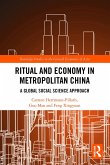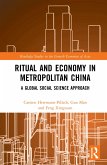
Broschiertes Buch
A Global Social Science Approach
29. April 2022
Routledge / Taylor & Francis

Gebundenes Buch
A Global Social Science Approach
27. Oktober 2020
Routledge
| eBook, ePUB | 41,95 € | |
| eBook, PDF | 41,95 € |
Ähnlichkeitssuche: Fact®Finder von OMIKRON
